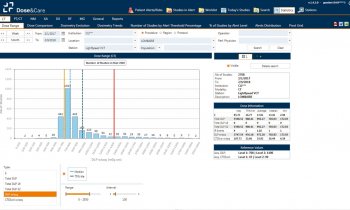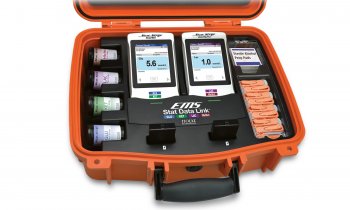RKI national statistics
Health-related behaviour in Europe – How well is Germany doing?
The population in Germany is more physically active than the European average. Regarding smoking, the data for Germany are quite close to the European average. However, the country does not do so well in other areas of health-related behaviour: Germany has the third lowest level of fruit consumption and the proportion of heavy episodic drinkers is above average.

Issue 2/2017 of the Journal of Health Monitoring focuses on health-related behaviour in Germany and Europe. The authors from the Robert Koch-Institut (RKI) report about the German Health Update (GEDA 2014/2015-EHIS) and compare the results from Germany with those of other EU countries and the individual German federal states. ‘Too little exercise, a poor diet, as well as smoking and harmful amounts of alcohol consumption are some of the most important influencing factors regarding non-communicable, chronic diseases,’ stresses Lothar H. Wieler, president of the Robert Koch Institute. The data from GEDA 2014/2015-EHIS has made it possible to compare data gathered using standardised methods on the health and health-related behaviour of people across Europe for the first time. The study’s results provide an indication of the impact of health policy measures and can be used to identify approaches to improving people’s health. For example, more structural- and behavioural-prevention measures are necessary in Germany in order to reduce harmful amounts of alcohol consumption.
The Fact sheets published in the latest issue of the Journal set out the results of the GEDA study for Germany on obesity, fruit and vegetable consumption, alcohol consumption, smoking and physical activity. Two Fact sheets concentrate on physical activity, which involves more than just sport. The World Health Organization recommends at least 150 minutes of moderate- to vigorous-intensity aerobic physical activity per week. On average, about one-quarter of women and one-third of men in the EU meet this recommendation. In contrast, almost half of the women and slightly more than half of the men in Germany do so. The current issue of the Journal focuses on data covering physical activity conducted during both leisure time and at work. The Journal’s ‘Concepts & Methods’ section focuses on how regional socioeconomic inequalities in health can be demonstrated and explained. A second article describes the methodical approach used to establish the monitoring system for obesity-relevant influencing factors in childhood.
The GEDA study, which has more than 20,000 participants, is part of the health monitoring conducted by the RKI and its efforts to continuously collect and analyse data on the health of the population in Germany. The GEDA 2014/2015-EHIS study fully implemented the European questionnaire (EHIS) for the first time, and participants aged 15 or above were included to ensure that the data gathered for the study were comparable at the European level. Initial results from GEDA 2014/2015-EHIS were published in the first issue of the Journal of Health Monitoring (1/2017).
For further information, see: http://www.rki.de/journalhealthmonitoring-en
Source: Robert Koch-Institut
16.06.2017











